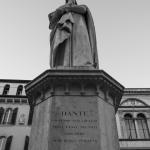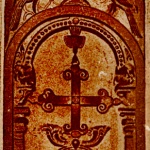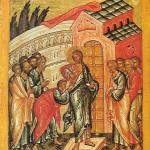From The New York Times:
Pope Francis offered a direct apology on Thursday for the complicity of the Roman Catholic Church in the oppression of Latin America during the colonial era, even as he called for a global social movement to shatter a “new colonialism” that has fostered inequality, materialism and the exploitation of the poor.
Speaking to a hall filled with social activists, farmers, garbage workers and Bolivian indigenous people, Francis offered the most ambitious, and biting, address of his South American tour.
He repeated familiar themes in sharply critiquing the global economic order and warning of environmental catastrophe — but also added a twist with his apology.
“Some may rightly say, ‘When the pope speaks of colonialism, he overlooks certain actions of the church,’ ” Francis said. “I say this to you with regret: Many grave sins were committed against the native people of America in the name of God.”
He added: “I humbly ask forgiveness, not only for the offense of the church herself, but also for crimes committed against the native peoples during the so-called conquest of America.”
It was the strongest language I can remember a pope using about the rights of the poor and about social justice.
In a stunning, nearly revolutionary, speech on Thursday in Bolivia, Pope Francis said that working for justice is not simply a moral obligation. For Christians, it is a commandment.
“It is about giving to the poor and to people what is their right.” Moreover, we cannot be content to stop at simple charity, when “a few drops fall whenever the poor shake a cup.” No, what we need is deeper. What we need is change.
The Pope who took his name from the Apostle of the Poor excoriated a world where the poor are stripped of their rights by a system in which they have no voice.
“Do we realize that something is wrong in a world where there are so many farmworkers without land, so many families without a home, so many laborers without rights, so many persons whose dignity is not respected?”
In fact, he said, labor, lodging and land (the “three Ls,” as he calls them) are “sacred rights.”
He went farther, calling for “structural change,” language sure not only to comfort the afflicted but to afflict the comfortable.
He went farther still: Pope Francis didn’t stop at calling for radical economic reforms and a redoubling of our efforts to stand in solidarity with the poor. He also acknowledged the church’s role in the colonialist period in the most forceful terms imaginable:
“I say this to you with regret: many grave sins were committed against the native peoples of America in the name of God. … Like Saint John Paul II, I ask that the church ‘kneel before God and implore forgiveness for the past and present sins of her sons and daughters.’ I would also say, and here I wish to be quite clear, as was Saint John Paul II: I humbly ask forgiveness, not only for the offenses of the church herself, but also for crimes committed against the native peoples during the so-called conquest of America.”
Where do these ideas come from? Where do these words come from? Where does this call for justice come from? Where does the urge to seek forgiveness come from?
From the same place. Or rather, from the same person: Jesus Christ.















